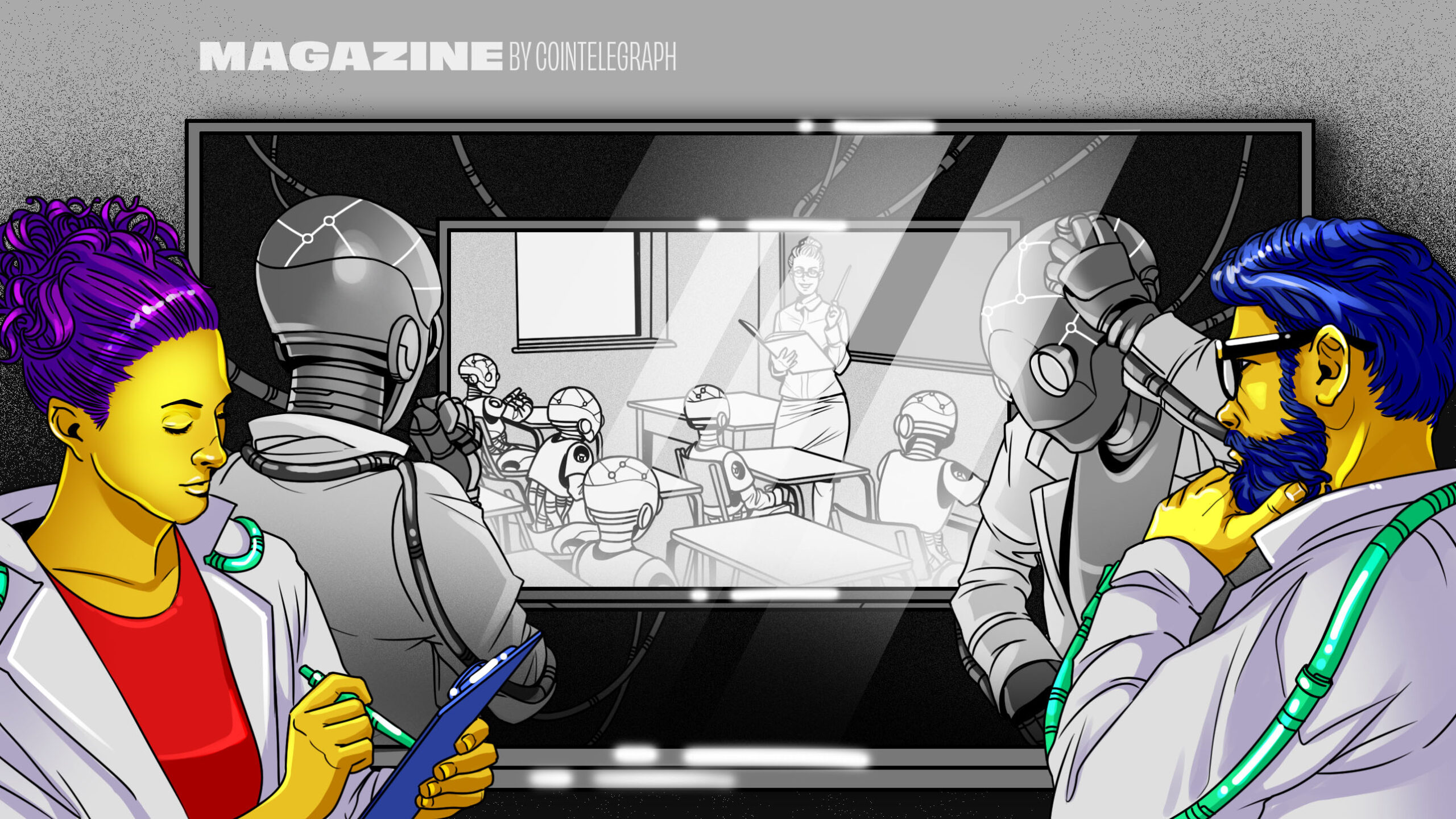Text generator ChatGPT is the fastest-growing consumer app ever, and it’s still growing rapidly. But the dirty secret of AI is that
Text generator ChatGPT is the fastest-growing consumer app ever, and it’s still growing rapidly.
But the dirty secret of AI is that humans are still needed to create, label and structure training data — and training data is very expensive. The dark side of this is that an exponential feedback loop is being created where AI is a surveillance technology. And so, managing the humans in the AI loop is crucial.
Some experts believe that when (potentially) robots take over the world, they’d better be controlled by decentralized networks. And humans must be incentivized to prepare the data sets. Blockchain and tokens can help… but can blockchain save humanity from AI?
ChatGPT is just regurgitated data
ChatGPT is a big deal according to famed AI researcher Ben Goertzel, given that “the ChatGPT thing caused the Google founders to show up at the office for the first time in years!” he laughs. Goertzel is the founder of blockchain-based AI marketplace SingularityNET and an outspoken proponent of artificial general intelligence (AGI) — computers thinking for themselves. That means he sees where ChatGPT falls short more clearly than most.
“What’s interesting about ChatGPT and other neuro models is that they achieve a certain amount of generality without having much ability to generalize. They achieve a general scope of ability relative to an individual human by having so much training data.”

Read also: How to prevent AI from ‘annihilating humanity’ using blockchain
In other words, ChatGPT is really one function achieved by the brute force of having so much data. “This is not the way humans achieve breadth by iterative acts of creative generalization,” he says, adding, “It’s a hack; it’s a beautiful hack; it’s very cool. I think it is a big leap forward.”
He’s not discounting where that hack can take us either. “I won’t be shocked if GPT-7 can do 80% of human jobs,” he says. “That’s big but it doesn’t mean they can be human-level thinking machines. But they can do a majority of human-level jobs.”
Logic predicated on experience remains harder for AI than scraping the internet. Predicate logic means that humans know how to open bottle caps, for example, but AIs need trillions of data to learn that simple task. And good large language models (LLMs) can still turn language into presumptive logic, including paraconsistent logic, or self-contradictory logic, explains Goertzel.
“If you feed them the whole web, almost anything you ask them is covered somewhere on the web.”
Goertzel notes that means part of Magazine’s questioning is redundant.
“I’ve been asked the same questions about ChatGPT 10 times in the last three weeks, so we could’ve just asked ChatGPT what I think about ChatGPT. Neuromodels can generate everything I said in the last two months, I don’t even need to be saying it.”

Goertzel is important in AI thinking because he specializes in AGI. He says that he and 90% of his AGI colleagues think LLMs like ChatGPT are partly a distraction from this goal. But he adds LLMs can also contribute to and accelerate the work on all kinds of innovation that could play a role in AGIs. For example, LLMs will expedite the advancement of coding. LLMs can even help ordinary people with no coding abilities to build a phone or web app. That means non-tech founders can use LLMs to build tech startups. “AI should democratize the creation of software technology and then a little bit down the road hardware technology.”
Goertzel founded SingularityNET as an attempt to use blockchain and open-source technology to distribute access to the tech that controls AGIs to everyone, rather than let it stay in the hands of monopolies. Goertzel notes that ChatGPT and other text apps deploy publicly viewable open-source algorithms. And so, the security infrastructure for their data sets and how users participate in this tech revolution is now at a crucial juncture.
For that matter, so is AI development more widely. In March, OpenAI co-founder Elon Musk and more than 1,000 other tech leaders called for a halt to the development of AI or rolling out systems more powerful than GPT-4. Their open letter warned of “profound risks to society and humanity.” The letter argued the pause would provide time to implement “shared safety protocols” for AI systems. “If such a pause cannot be enacted quickly, governments should step in and institute a moratorium,” they posited.
Goertzel is more of an optimist about the tech’s potential to improve our lives rather than destroy them, but he’s been working on this stuff since the 1970s.
cointelegraph.com
